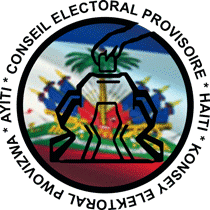After nearly eight days of vote counting and ballot verifications, the CEP has finally released its preliminary results for the November 20th presidential election.
In a commanding show of support, Jovenel Moise reportedly captured 55.67% of the total vote to become the presumptive president-elect of Haiti.
He received 595,430 votes, beating out second-place contender Jude Célestin, who captured 208,837 votes or 19.52% of the total vote.
Candidates Moïse Jean Charles and Maryse Narcisse finished in 3rd and 4th place, respectively, with 11.04% and 8.99% of the total vote.
The remaining 23 candidates finished with less than 1% of the total vote count.
Jude Célestin (a civil engineer), Moïse Jean Charles (a former senator), and Maryse Narcisse (a medical doctor) are all highly qualified presidential candidates with solid political followings. This was Jude Célestin’s second time running for office after conceding to Michel Martelly in 2010.
As is customary with all Haitian presidential elections, members of the CEP must sign off on the official results to validate the legitimacy of their approval—only six of the nine electoral councils signed off on the preliminary results. Six signatures are all that is needed to make the results legally binding.
List of Top 4 Presidential Candidates by Vote Count
1 – Jovenel Moise (PHTK) | Total Votes: 595,430 | Percentage of total: 55.67%
2 – Jude Célestin (LAPEH) | Total Votes: 208,837 | Percentage of total: 19.52%
3 – Moise Jean Charles (Pitit Dessaline) | Total Votes: 118,142 | Percentage of total: 11.04%
4 – Maryse Narcisse (Fanmi Lavalas) | Total Votes: 96,121| Percentage of total: 8.99%
**Results Based on 1,069,646 validated votes.
Unless the runner-up candidates move quickly to file a legal motion to contest the vote counts, the CEP will begin working towards steps to finalize these results by December 29th, 2016. Judging from the historically low voter turnout of roughly 21%, it is unclear how most of the population will react if and when the results become final.
Many political observers had predicted that there would be a definitive second round. However, after reportedly receiving more than 51% of the electoral vote, Jovenel Moise will most likely be elected as the next president of Haiti.
Jovenel Moise, popularly known as “Neg Bannan Nan”, is former president Michel Martelly’s hand-picked successor.
If the preliminary results are not successfully challenged in Haiti’s electoral court of appeals, Jovenel Moise will start his 5-year presidential term on February 7th, 2017.
This would give him about five weeks from December 29th to start building his cabinet. He would also have to move quickly to secure nominees for key post in his new administration.
Should Jovenel Moise be officially declared the next president of Haiti, he faces the monumental task of finding solutions to many social, political and economic hardships.
While his campaign was largely based on growing the economy and creating jobs through the agricultural sector, the billions of dollars in losses caused by Hurricane Matthew will likely put many of his initiatives under intense scrutiny.
I wish I could say that Haiti can now breathe a sigh of relief after nearly two years of significant political instability. Still, no one knows how the various political parties will react in opposition to a losing campaign.
Given the significant margin by which Jovenel Moise won the first round, only time will tell if a peaceful transition of power will take place.
